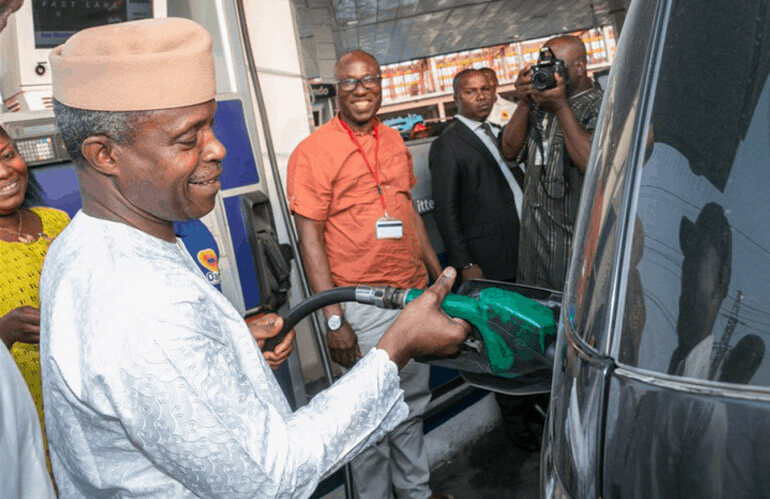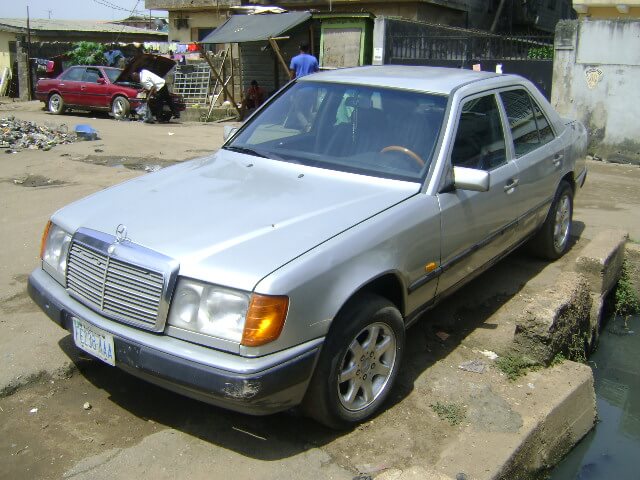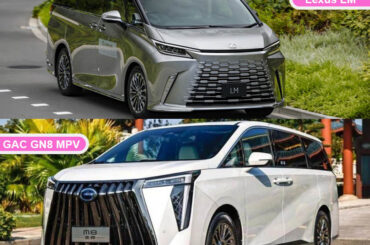Have you ever stopped at a petrol station to buy fuel only to discover that your gauge does not accurately show the amount you purchased? But if you are certain that you haven’t, pay close attention since you might have been duped by the deceptive tactics used by petrol attendants. Most Nigerian drivers have been taken advantage of at some point.
Table of Contents
When purchasing fuel, it is advised to constantly pay close attention to the pump metre. When the pump starts normally, the metre must be reset to zero; however, unscrupulous attendants prey on your inattention to start the metre from the place where the last sale was made. If you want to watch, get out of your car and stand close to the metre. Here are a few strategies you can use to guard against being conned:
The TIM/CAL or Recall button
Some individuals might not be aware of this, although most gasoline dispensers have a button marked “Recall, TIM/CAL” or another label, depending on the unit. The purpose of the button is to make it possible for the attendant to view previous sales. You can view your most recent ten sales by pressing Recall, followed by the number you want to see, etc., and it will display the amount. In addition to looking at previous sales, fuel attendants use it to defraud customers.
Imitating the Nozzle’s Hanging
Almost every gas customer is aware that the readings reset to zero when the nozzle is hanging on the dispenser. As a result, gasoline attendants have also discovered a way to exploit it to increase their income. In order to prevent the old sales from being rubbed off and returning to zero, they gently hang the nozzle while the dispenser is still running.
This way, if a new customer arrives, they can simply pick up where they left off with the previous customer. This tactic is frequently employed when there is a shortage of fuel or when clients need to acquire fuel quickly. If the last transaction was for a small amount, the gasoline attendant will find this approach to be simpler.
The Okada or Keke Napep Benefit
Commercial tricycles and motorcycles, also known as Okadas and Keke Napeps in Nigeria, typically purchase small amounts of gasoline, such as 2 or 3 litres. The fuel attendant will exploit the Okada/Keke Napep advantage because of the small amount sold earlier and continue to flow fuel into the car’s tank without clearing the previous customer’s Okada/Keke Napep if the following customer plans to buy gasoline for his vehicle or Jerry can.
The Fill Your Tank Program
Because no more fuel is added to the tank when the pump shuts off automatically, filling up the tank may be another way to waste money and fuel. You are paying for gasoline that you do not receive because it is likely being diverted through the pump’s vapour recovery system and back into the station’s tank.
However, the need for space in the tank is more important because fuel vapours need room to expand. Overfilling a vehicle can push gas into the carbon filter, resulting in subpar operation, decreased mileage, or expensive repairs. Don’t fill up your tank the next time you need to buy fuel; it’s better for your automobile and much better for your money.
The problematic metre
Some gas pumps have modified metres so that they begin to tick even before the gas begins to flow from the pipe. Have you ever visited a gas station to buy gasoline and found that it takes less time there to fill your tank than it does elsewhere? This is due to tampered metres; depending on how the metres were altered, the attendant may lead you to believe that a particular fuel dispenser is operating quicker or slower than usual.
Using a dispenser pipe that is excessively long
Pumps that use long pipes conserve a lot of gasoline. A perfectly good metre will indicate that a specific volume of gasoline has been pushed out, but that volume hasn’t yet reached your tank because some of it is still in the pipe and will return to the pump. Stations can save a significant amount of fuel during the day, which causes the attendant to amass extra income from fuel that isn’t dispensed.
Getting Involved With The Dispenser Nozzle
The fuel flow is typically stopped manually by the pump attendants by keeping their fingers close to the nozzle. The necessary fuel runs out in this manner. By using these kinds of methods, the pump employee probably saves a few litres of fuel in a single day, which adds up to his own personal profit for the day.
Price Indicators From Both Sides
Pump attendants, who typically operate while drivers are distracted by other thoughts, manipulate drivers using this specific method. Pump attendants frequently display such audacity. When a gas pump has a back-and-forth screen that shows the amount of money dispensed on both sides, drivers should exercise additional caution.
Each side of the screen could display a different price for a variety of reasons, some of which are technical. For instance, there were ₦6,000 on one screen and around ₦4,000 on the other.
If you requested to purchase fuel valued at ₦5,000 and another customer from the opposite side of the pump is also purchasing fuel valued at ₦5,000, if you are not paying close attention, a cunning attendant may issue fuel valued at ₦4,000 and pretend to have dispensed the amount you requested while pointing to the pump on the other side; in reality, you have lost ₦1,000 because the price indicator was for the other pump.
Conclusion
Fuel attendants are sometimes very cunning when it comes to dispensing fuel. They make you believe that you bought a specific amount of fuel while in truth you didn’t, they will take advantage if you get distracted. During fuel scarcity periods, this is very rampant, so be careful next time you go to the filling station.
Frequently Asked Questions
What Does a Gas Station Attendant Do
A gas station attendant, or gas jockey, provides customer service at a full-service gas station. Their duties include greeting customers, pumping the requested amount of gasoline, cleaning windows, checking fluid levels, checking tire pressure, and processing payments. They may also be responsible for station upkeep, including emptying trash bins and sweeping floors. Skills include basic maths, basic vehicle mechanics, and knowledge of safety protocols, such as where shut-off valves are located and how to use them in case of emergency.
How Do I Know If I bought the correct amount of fuel from the petrol station
There is no way to know this unless you look at the metre at the point of buying fuel. Because some fuel attendants are quite cunning and a moment of distraction might allow them to sell a lesser amount to you. Keep abreast with the current fuel prices or hikes in the market, especially during fuel scarcity periods.
Have 1 million naira and above to Buy or Sell Cars In Nigeria? Check carlots.ng
All rights reserved. Reproduction, publication, broadcasting, rewriting, or redistribution of this material and other digital content on carmart.ng is strictly prohibited without prior express written permission from Carmart Nigeria - Contact: [email protected]







